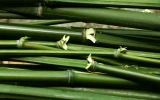Average Price of a Bamboo Plant in 2024 (Per Lb & per Ton)
In 2024, the global bamboo market continues to expand, with an estimated annual growth rate of 5%, underscoring its increasing significance in various industries, from construction to consumer goods. This growth is driven by bamboo's eco-friendly attributes and versatility, making it a sought-after resource in efforts to promote sustainability and reduce carbon footprints. In this article, we will delve into the intricacies of bamboo pricing in 2024, examining both per-pound and per-ton rates.
Bamboo prices range from $1 to $5 per pound, translating to approximately $2,000 to $10,000 per ton. The price for bamboo in the Philippines is between $1.52 and $2.41 per pound. In China, it's from $0.04 to $0.13 per pound. In the UK, it's between $1.34 and $2.69 per pound.
However, the bamboo market has seen considerable price fluctuations in 2024. Let's find out how availability and seasonality play pivotal roles in shaping bamboo's market value.
Summary
- The average price of bamboo plants ranges from $15 to $100 for young/small (1-2 years) ones, reflecting their growth potential and care needs, and from $100 to over $500 for mature/large (5+ years) ones, indicating their immediate landscaping impact and the extensive care and resources they have received.
- The price of bamboo varies by species, with decorative species like black bamboo priced at $450 per ton ($0.20 per lb.), indicating a premium for unique aesthetic qualities.
- Seasonal fluctuations impact bamboo prices, with prices increasing from $300 per ton ($0.15 per lb.) in spring to $450 per ton ($0.22 per lb.) in winter due to changes in availability.
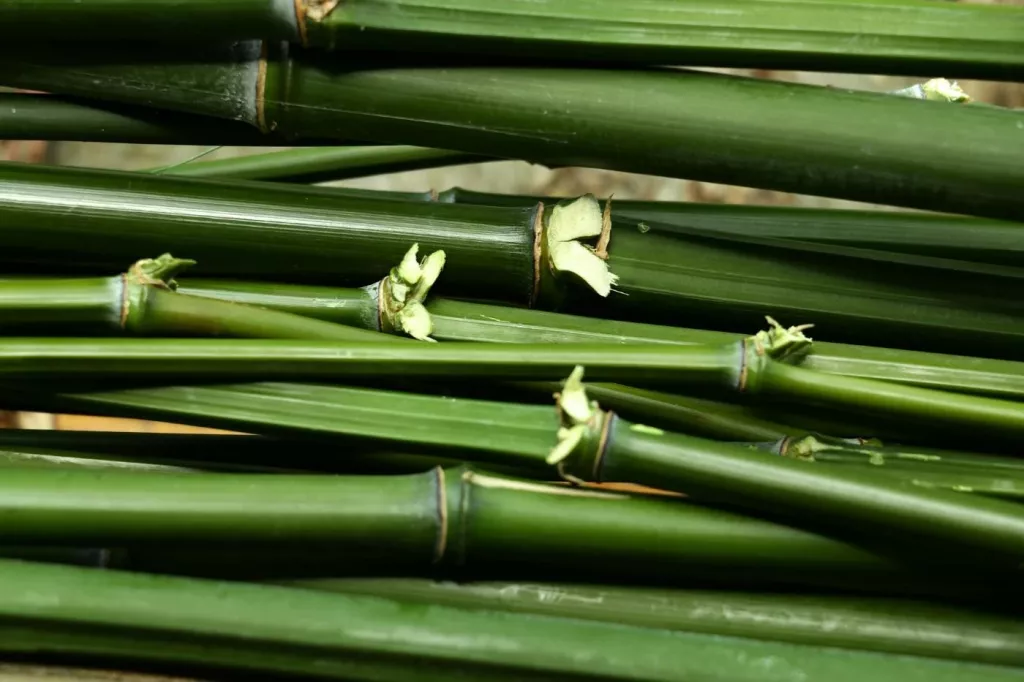
On this page:
Bamboo Price per Pound
| Country | Bamboo Price Range per Pound ($) |
|---|---|
| Philippines | $1.52 - $2.41 |
| China | $0.04 - $0.13 |
| UK | $1.34 - $2.69 |
Philippine bamboo price per pound
The price range in the Philippines is relatively high, between $1.52 and $2.41 per pound. This could be due to several factors such as higher labor costs, smaller scale of production, or the export of higher quality or specific types of bamboo that are more valued in international markets.
Bamboo price per pound in China
China shows the lowest price range, from $0.04 to $0.13 per pound. China is the largest producer of bamboo in the world, which could contribute to lower prices due to economies of scale, government subsidies, and a well-established supply chain that reduces costs.
Bamboo pricing per pound in the UK market
The price range in the UK is similar to the Philippines, between $1.34 and $2.69 per pound. Since the UK needs to import bamboo, the cost includes shipping, import duties, and potentially a preference for higher-end, processed bamboo products, which can drive up prices.
Bamboo Price per Ton
| Type of Bamboo | Intended Use | Region | Price per Ton (USD) | Note |
|---|---|---|---|---|
| Raw bamboo | Construction | Southeast Asia | $200 - $300 | Bulk, unprocessed |
| Bamboo shoots | Consumption | Japan | $1000 - $1,500 | Edible, seasonal |
| Bamboo fiber | Textile production | India | $700 - $800 | Processed for fabric |
Price per ton of raw bamboo
Raw bamboo is primarily used in construction within Southeast Asia and is the least expensive, ranging from $200 to $300 per ton. It is sold in bulk and unprocessed.
Price per ton for bamboo shoots
Bamboo shoots are intended for consumption in Japan, with a significantly higher price range of $1000 to $1500 per ton, attributed to their edible and seasonal nature.
Price per ton of bamboo fiber
Bamboo fiber, processed for fabric production, is sourced from India and costs between $700 and $800 per ton. This type is processed specifically for textile production.
Average Price of a Bamboo Plant Based on Size and Age
Young, smaller bamboo plants are generally more affordable, while mature, larger bamboo command a higher price due to their established growth and immediate visual impact.
Here's a basic table to summarize the average price based on various weights and ages:
| Age/Size of Bamboo | Average Price Range |
|---|---|
| Young/Small (1-2 years) | $15 - $100 (per plant) |
| Mature/Large (5+ years) | $100 - $500+ (per plant) |
Price of young bamboo plants (1-2 years old)
Price range: $15 - $100 per plant
Young bamboo plants are at the beginning stages of their growth cycle. Buyers are paying for the potential of the plant to grow larger and fuller, which requires time and care.
Since these plants are in the early stages of growth, they're less expensive to acquire. However, they require patience and care over several years to reach maturity. Find out how many bamboo seeds you need per acre to make your farm profitable.
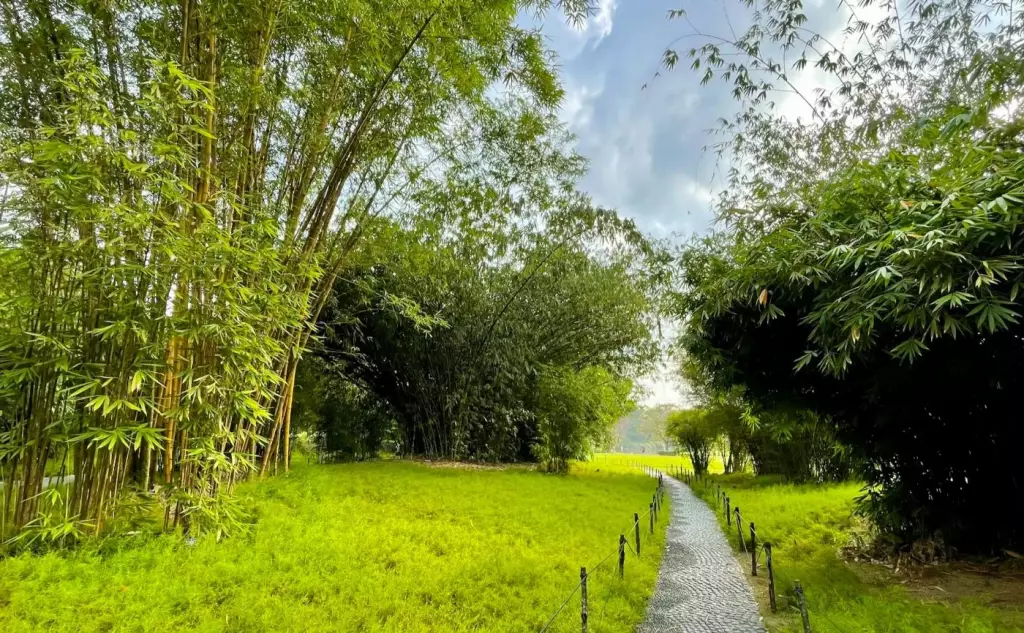
Cost of mature bamboo plants (5+ years old)
Price range: $100 - $500+ per plant
Mature plants provide an immediate aesthetic or functional impact, such as privacy screening or as a focal point in landscaping.
The price reflects the years of care, maintenance, and space a bamboo has received to reach its mature size. This includes the resources consumed over the years, such as water, nutrients, and the space it occupies.
Larger, mature plants are more challenging and expensive to transport and install due to their size and weight.
Additionally, certain varieties of bamboo, like Guadua, are highly sought after for their robustness and versatility, particularly in construction and craftsmanship.
These species are often more expensive due to their superior qualities and the demand for sustainable, durable building materials. You can read this article to find out more reasons why bamboo can be expensive but a worthwhile investment.
Price Based on Type and Species
| Bamboo Type | Species | Common Name | Price per Ton | Price per lb |
|---|---|---|---|---|
| Clumping | Guadua | Guadua Bamboo | $300 | $0.15 |
| Clumping | Bambusa textilis | Weaver's Bamboo | $350 | $0.18 |
| Running | Phyllostachys edulis | Moso Bamboo | $250 | $0.13 |
| Running | Phyllostachys aurea | Golden Bamboo | $275 | $0.14 |
| Decorative | Chusquea culeou | Chilean Bamboo | $400 | $0.20 |
| Decorative | Gigantochloa atroviolacea | Black Bamboo | $450 | $0.2 |
Moso bamboo, known for its versatility and strength, often carries a premium price tag.
In contrast, Black bamboo adds a unique aesthetic with its dark-colored canes, which may also influence its cost.
Golden bamboo is another popular choice, particularly for decorative purposes, which can affect its market price. Prices can fluctuate based on demand and the rarity of the specific varieties within these species.
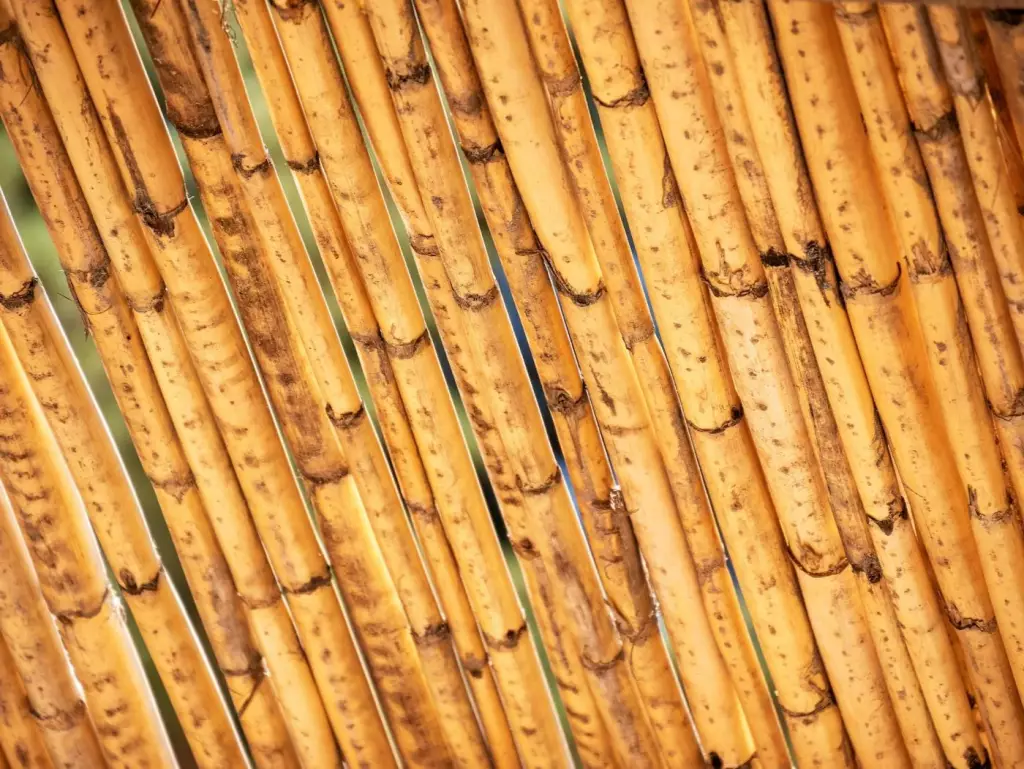
Bamboo Price Based on Availability and Season
The average price of bamboo can fluctuate with changes in availability and the season.
| Season | Availability | Estimated Price per Ton | Estimated Price per lb | Remarks |
|---|---|---|---|---|
| Spring | High | $300 | $0.15 | Prices lower due to high availability |
| Summer | High | $320 | $0.16 | Slight increase due to sustained demand |
| Fall | Low | $400 | $0.20 | Prices increase as availability decreases |
| Winter | Low | $450 | $0.22 | Highest prices due to scarcity and lower growth |
You might notice that during peak growth seasons, typically in the spring and summer, bamboo is more plentiful. This increase in supply can sometimes lead to lower prices for you as a buyer.
Conversely, during off-peak seasons, like fall and winter, when growth slows, the scarcity can drive prices up. It's beneficial for you to keep an eye on these seasonal buying advantages to snag a better deal when the availability is high.
Bamboo Pricing Comparison
Retail vs. wholesale price of bamboo
When you're shopping for bamboo plants, prices can differ significantly based on whether you're purchasing at retail or wholesale.
Retail prices are what you encounter at garden centers or local nurseries. These prices are typically higher due to the costs associated with smaller-scale selling, such as handling, storage, and staffing.
Wholesale prices, on the other hand, are offered when bamboo plants are bought in large quantities, often directly from the growers or suppliers.
If you're looking to buy in bulk for a landscaping project or to resell, wholesale might be the way to go. These prices are lower due to economies of scale.
Below is a table comparing average bamboo prices per pound and per ton at retail and wholesale markets:
| Quantity | Retail Price | Wholesale Price |
|---|---|---|
| Per pound | $1.50 | $0.75 |
| Per ton | $1,000 | $500 |

How to Negotiate Bamboo Prices
When you're looking to purchase bamboo, whether it's a single plant, bamboo plywood, or even land for bamboo cultivation, you need to enter negotiations with a clear mindset. Here's a guide to navigating the bargaining process:
Understand the market value
- Determine the average price per pound of bamboo: currently, it could be around $0.30 based on market trends.
- For bamboo plywood, prices may vary depending on thickness and quality, so do your research.
- Knowing the value of the item allows you to negotiate with confidence.
Prepare to negotiate
- If you're in the market to buy or sell bamboo, start your offers at a fair but negotiable rate.
- Aim for a win-win scenario where both you and the seller feel satisfied.
Consider bulk purchases
- Larger quantities often come with the leverage for better rates.
- Sellers may drop prices per ton when dealing with substantial orders.
Seasonal Buying Advantages
Availability typically increases during the main harvesting periods, which often means lower prices due to the abundance of stock.
Bamboo is fast-growing and low-maintenance, making certain seasons more favorable for growers to sell in larger quantities.
India, South Africa, Philippines, New Zealand, Australia, and the United Arab Emirates (UAE) all have varied harvesting times. This variation means that at any given time in the year, one or more of these regions could offer competitive prices due to their harvest season being in full swing.
| Region | Harvest Season | Impact on Prices |
|---|---|---|
| India | June - September | Lower |
| South Africa | Year-round | Stable |
| Philippines | March - November | Lower during peak |
| New Zealand | October - April | Lower |
| Australia | Year-round | Stable |
| UAE | November - April | Seasonal reductions |
By monitoring the harvest times, you may secure your bamboo at a price that fits your budget. Learn more about the harvesting cycle of bamboo in this article.
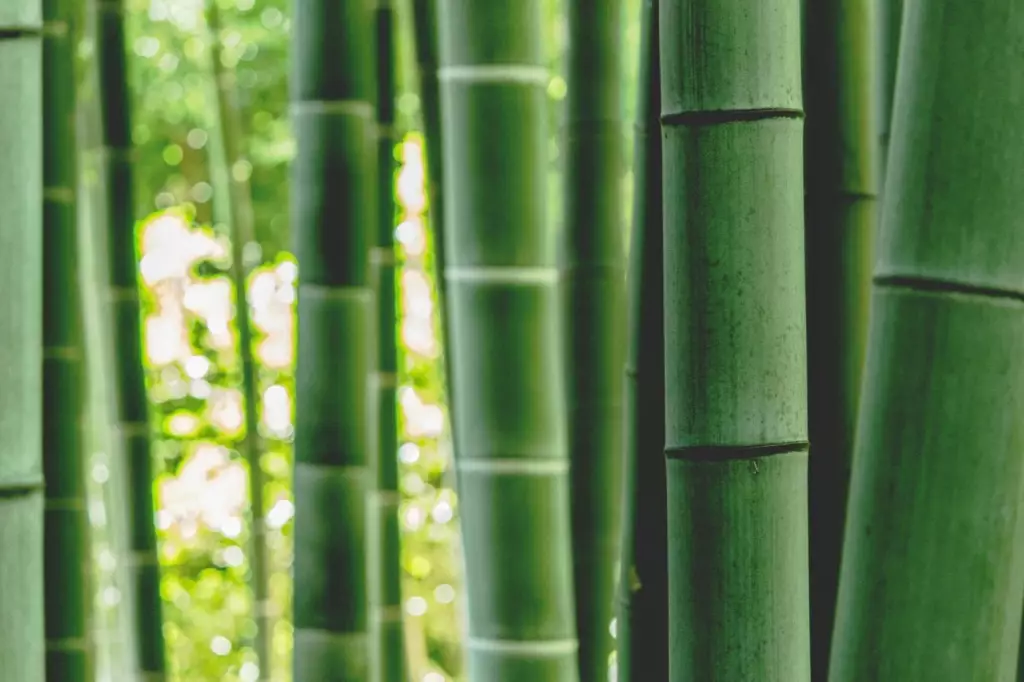
Certifications may also influence prices, but typically, they reflect consistent quality rather than seasonal changes.
Be aware of factors like the cost of urea, a common fertilizer, which may affect the overall cost of cultivation and, thereby, the selling price of bamboo. It's wise to keep an eye on the fertilizer market trends during the year as they can indirectly influence bamboo prices.



